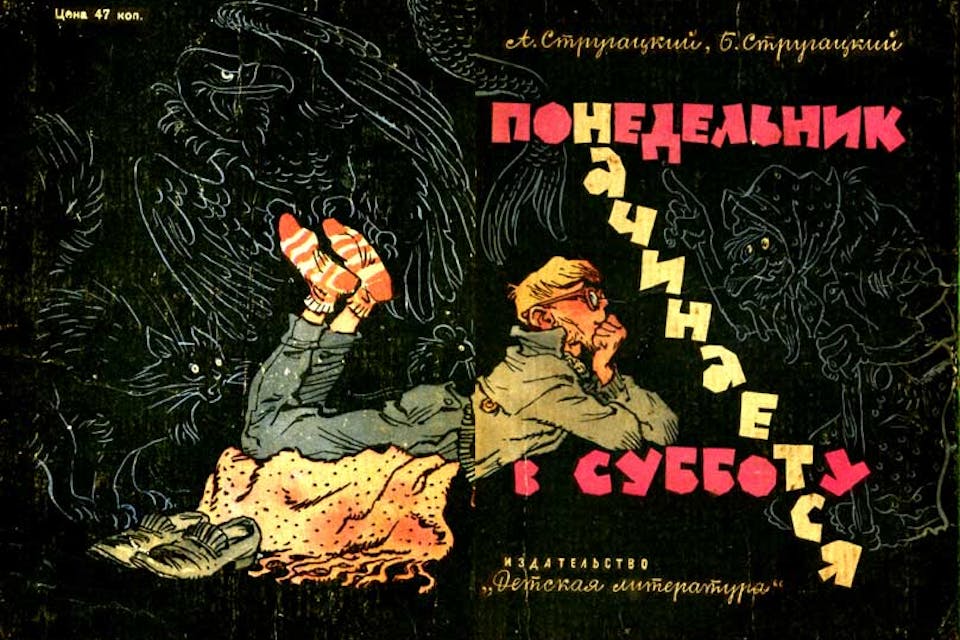
March 22, 2018
The Daring Strugatsky Brothers, Practitioners of Outwardly Soviet, Covertly Jewish Science Fiction
Deified by their Soviet readers, Arkady and Boris Strugatsky are beginning to find increasing numbers of readers in America.
Deified by their Soviet readers from the 1960s on, the Strugatsky brothers—Arkady (1925-1991) and his younger sibling Boris (1933-2012)—were not only the most popular and prolific Russian writers of science fiction, a highly respected genre in post-Stalinist Soviet culture, but its most daring practitioners. Translated widely during the cold war, their work was continually on the radar of American science-fiction writers from Isaac Asimov to Ursula Le Guin to Kim Stanley Robinson.
With the recent advent of new and improved English translations, the latest of which is Monday Starts on Saturday, increasing numbers of American readers have become familiar with the brothers’ genre-crossing output, which ranges from adventure and mystery to dystopias, parables, and parodies, all playing off the staple science-fiction themes of time- and interplanetary travel, the nature of AI, and the existence of alternative “matrix” realities.
How the morose and hard-drinking Arkady, by training a translator from Japanese, and the talkative and approachable Boris, with his degree in astrophysics, actually wrote their 30 books together remains something of a mystery, but there is no doubt that every sentence was composed in tandem. Even more intriguing is their progression from true believers in the Communist cause—their early works envision a triumphant Communist future in the 22nd century—to doubters and finally radical (albeit subterranean) denouncers. As Boris put it in a post-Soviet interview, their first disagreements with the regime were of a “stylistic nature.” But once the differences deepened, bringing grave problems with Soviet censors, they had to design new methods of getting into print. Their general strategy, in Boris’s account, was to write in a way that would cause their editors’ hair to stand on end but not scare them enough to turn a manuscript over to the “appropriate organs.”